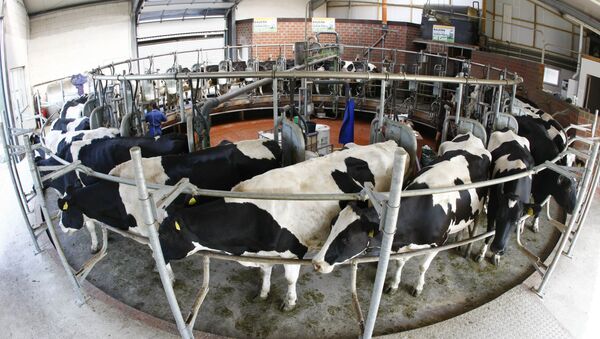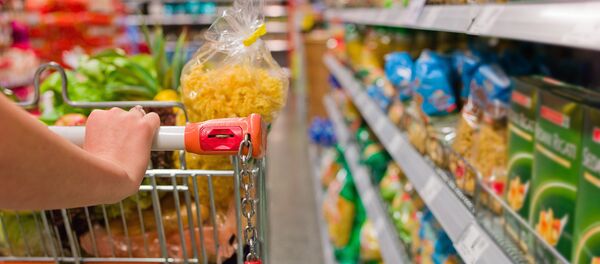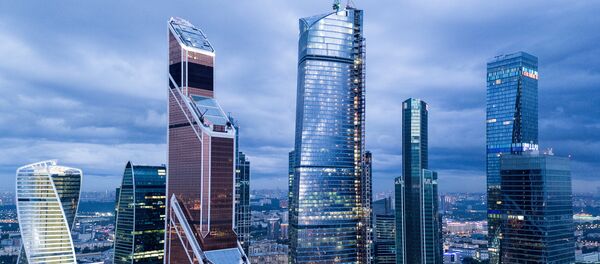The move comes as no surprise, given that the milk prices collapsed after Moscow introduced food embargo in response to the EU's anti-Russian sanctions.
In an interview with Sputnik, Frank Feuerriegel, executive director of the Regional Union of Milk Producers of Lower Saxony, touted Russia as "our most important export market outside the EU."
"This market quickly disappeared due to the embargo, dealing a heavy blow to the [German] milk producers," he said.
Russian customers were the third largest buyers of German dairy products, such as butter and cheese, after the German domestic market and the EU market, he added, referring to milk producers in other EU countries who were also hit by the Russian food embargo.
Countries Hardest Hit By #Russia's Trade Ban.#EU #Poland #US #Canada #Germany #France #G7 #Ukraine #sanctions #Putin pic.twitter.com/vbNSOqZfGH
— SpecGhost (@SpecGhost) 8 июня 2015 г.
Feuerriegel expressed hope for an early end to the anti-Russian sanctions, saying that "we always insist on a political solution" to the problem.
At the same time, he remained downbeat about the economic situation being improved quickly after the embargo is lifted.
"We do not expect that there will be great demand for German products in Russia as it was before. Firstly, the Russian market went through a process of self-regulation, and secondly, the purchasing power of Russians has decreased due to the sanctions," he said.
Foyerrigel suggested that the milk prices will increase in 2017 as the EU currently tries to reduce the production of milk with the help of 150 million euro compensation package.
French farmers block roads in protest at huge drop in milk and pork prices following Russian trade sanctions https://t.co/dMwVcjl1gn
— Farming Monthly (@FarmingMonthly) 15 февраля 2016 г.
The United States, the European Union and some of their allies have imposed several rounds of restrictive anti-Moscow sanctions targeting key sectors of the Russian economy, as well as a number of individuals and entities.
Russia has repeatedly refuted the allegations, warning that the Western sanctions are counterproductive and undermine global stability. In response to the restrictive measures, Russia has imposed a food embargo on some products originating in countries that have targeted it.
In July 2016, the EU Council prolonged the anti-Russian sanctions until January 31, 2017, and Russia responded by extending its counter-sanctions until December 31, 2017.






